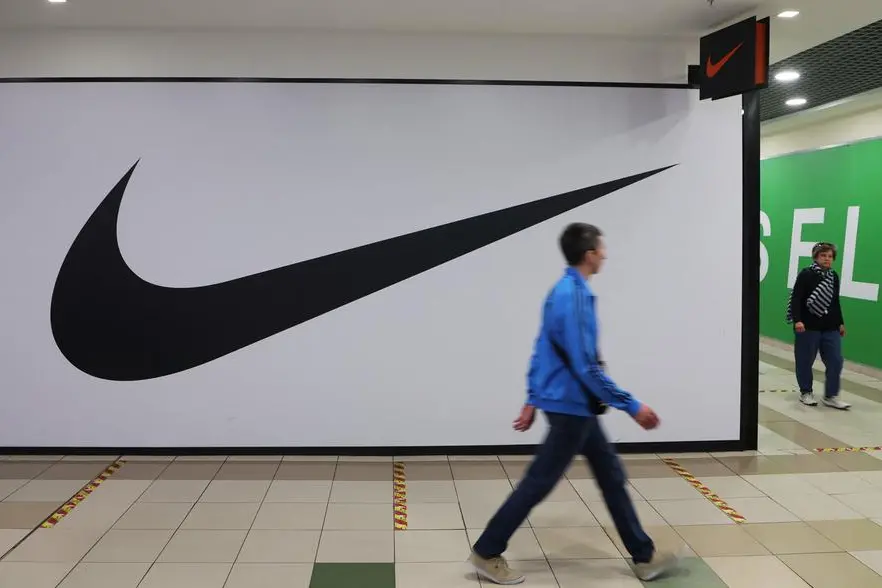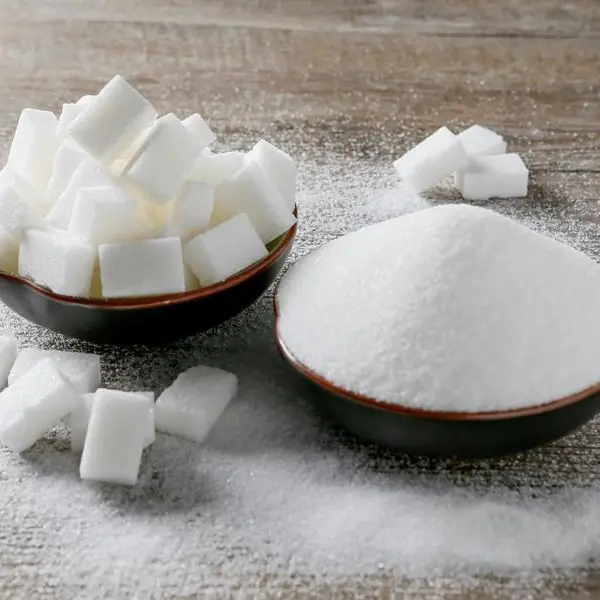PHOTO
Nike has increasingly leaned on its iconic basketball shoes to boost sales, but as the sportswear giant bleeds market share to newer brands, some analysts and investors are wondering if that is a mistake.
Shares of the retailer were down 5.6% in extended trading on Thursday after a post-earnings conference call in which executives acknowledged Nike had lost share in running shoes, a category that has surged in popularity over the last year.
Nike CFO Matt Friend told investors the company was cutting back on supplies of "classic" shoes, including the company's Air Force 1 sneakers, to focus on upcoming launches and new product development.
The move is a major shift for Nike compared to five years ago when basketball shoes from the Jordan brand and court-inspired styles such as the Air Force 1 and Nike Dunk drove the company's sneaker sales. However, consumers have new favorites in the market like On and Deckers-owned Hoka, which have grabbed more shelf space globally.
"If we do a post-mortem, maybe there’s been too much reliance on legacy or historical product," said Jim Tierney, chief investment officer of Concentrated US Growth Equities at AllianceBernstein, which owns Nike shares.
Nike Air Jordan shoes, first produced for U.S. basketball star Michael Jordan during his time with the Chicago Bulls, were released in 1985. The sneakers soon became a global craze thanks in part to ads featuring Jordan and filmmaker Spike Lee with the tagline "It's gotta be the shoes."
Data from analytics firm Altan Insights, which studies the collectible sneaker market, shows that Nike doubled the number of Air Jordan 1 Highs released through its SNKRS app between 2019 and 2023 and more than tripled the number of Nike Dunk Lows released over the same period.
While Nike does not report what percent of its total revenues come from Jordan, the brand accounts for roughly 16% of the retailer’s wholesale revenues, according to Nike’s fiscal 2023 annual report - up 29% compared to the previous year.
But the growing popularity of newer brands such as On and Hoka, as well as established sportswear players like New Balance suggests the importance of Jordan sales has become a liability for the company, analysts said. One problem is shifting consumer tastes, according to Stifel analyst James Duffy.
On's market share at Dick's Sporting in the footwear category increased to 8.2% in February from the 6.1% it had in October 2023, while New Balance saw its market share rise to 5.4% from 4.6% for the same period.
This is in contrast to Nike's Jordan whose market share at the retailer has hovered over only 5% from October to February, according to YipitData, which collates market share using email receipt and transaction data.
In a Sunday note, Duffy wrote that "retro footwear trends are shifting from court styles (in which Nike is overweight) towards chunky dad shoes and terrace styles." That has allowed competitors such as New Balance and Adidas, with its best-selling Samba sneakers, to draw shoppers who might have otherwise turned to Nike as a fashion choice.
Nike's newer basketball shoe releases have not had the same popularity with shoppers as its retro styles, according to Jane Hali & Associates senior analyst Jessica Ramirez. Its newest entry, the Book 1, named for NBA star Devin Booker, "did not get a very good review and is a very casual-looking shoe" instead of a performance-driven basketball shoe, Ramirez said, referring to the category for activity or sports shoes.
To be sure, certain styles of Nike basketball shoes, including the Air Jordan 11 Retro, are currently on trend, though not as performance shoes. "The reason we're seeing all these promotions in Nike’s non-retro basketball styles is because they're not a fashion uniform the way wearing a pair of 11s is," said Williams Trading analyst Sam Poser.
The Air Jordan 1 Mid SE, usually priced at $135, was discounted $87.97 on Nike's U.S. website as of Thursday, while its low-top Dunks sell for $115 and high-top versions sell for up to $165. Low-top Air Jordan 11s, a non-retro style, are currently reduced from $130 to $97.97.
Nike shares have lost 16% of their value over the last 12 months while Deckers shares have more than doubled. Nike executives have highlighted upcoming products in the running category to compete with On and Hoka, whose sneakers have become popular with shoppers who wear them to the office as well as on runs.
Tierney said investors are also hopeful that upcoming fashion shoe launches, such as the Nike Air Max DN, which will price at $160, will counteract the slowdown in Nike’s retro business.
"I think the next six months are critical," he said. "We know that newness is coming, but if it doesn't take off now, I think investors will ask the question, 'then when?'"
(Reporting by Ananya Mariam Rajesh in Bengaluru and Kate Masters in New York; Editing by Josie Kao)





















